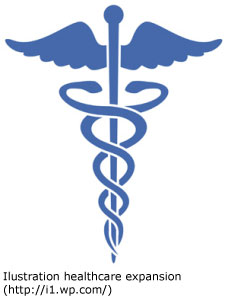 The more uninsured residents Mississippi’s health insurance exchange signs up under the Affordable Care Act the bigger the hit the state’s hospitals will take on federal reimbursements for treating the uninsured.
The more uninsured residents Mississippi’s health insurance exchange signs up under the Affordable Care Act the bigger the hit the state’s hospitals will take on federal reimbursements for treating the uninsured.
The consequence is one of many Mississippi Gov. Phil Bryant and legislative leaders must weigh in refusing state participation in expanding Medicaid.
The state stands to lose hundreds of millions of dollars in coming years in federal Disproportionate Share Hospital, or DSH, reimbursements for uncompensated hospital care, the Mississippi Hospital Association says. The money would be offset by the new federal dollars flowing in to add an estimated 300,000 of the state’s working poor to Medicaid rolls. The rub is Bryant and legislative leaders want neither the extra money nor the increased Medicaid rolls. They cite uncertainties over the state’s eventual financial share of expanding the coverage.
Their refusal has a pair of consequences.
While hospitals will lose a large pile of money that formerly went to cover uncompensated care, each new enrollee in the federally mandated health care exchange will increase the size of that pile.
The other consequence is that a portion of Mississippi’s population will be stuck in a no-man’s land of sorts. They will be put there by having a little too much income to qualify under current Medicaid rules and not enough income to qualify for the federal insurance exchange subsidy. Their medical care will continue to come from hospitals on an uncompensated basis.
In the years ahead, the Affordable Care Act could present conflicting goals to Medicaid expansion opt-out states such as Mississippi. On one hand, the more success it has getting the uninsured signed up for coverage on the exchange the fewer dollars it will receive in caring for people who lack medical insurance, said Dr. John A. Graves in a December article in the New England Journal of Medicine.
“A state that was not expanding its Medicaid program could reduce its uninsured rate and trigger DSH cuts simply by covering people through its insurance exchange,” he wrote.
In short, Graves said, hospitals in non-expansion states could face substantial erosion of DSH funds despite seeing little or no change in the amount of uncompensated care they provide.
Addressing coverage for Mississippians caught in the no-man’s land, Graves said these residents will have income insufficient for the exchanges and thus won’t fall under the mandate to have health insurance. What they will have, he said, is continued use of Mississippi hospitals on an uncompensated basis. They “would remain uninsured and the primary beneficiaries of uncompensated hospital care.”
The Mississippi Hospital Association has seen this coming for some time now. It estimates “failure to expand Medicaid eligibility will leave just under 200,000 Mississippians with no health care coverage at all.”
These Mississippians, said Mississippi Hospital Association president/CEO Sam Cameron, “will be left ‘in the gap’ — not eligible for Medicaid and not eligible to purchase health insurance through the health insurance exchange. The result could be devastating. Hospitals cannot be expected to treat such a large volume of people with no expectation of payment for those services.”
He predicted the result could be closure of many of the state’s community hospitals.
“These are burning policy issues that must be addressed fairly quickly.”
Source: msbusiness.com








